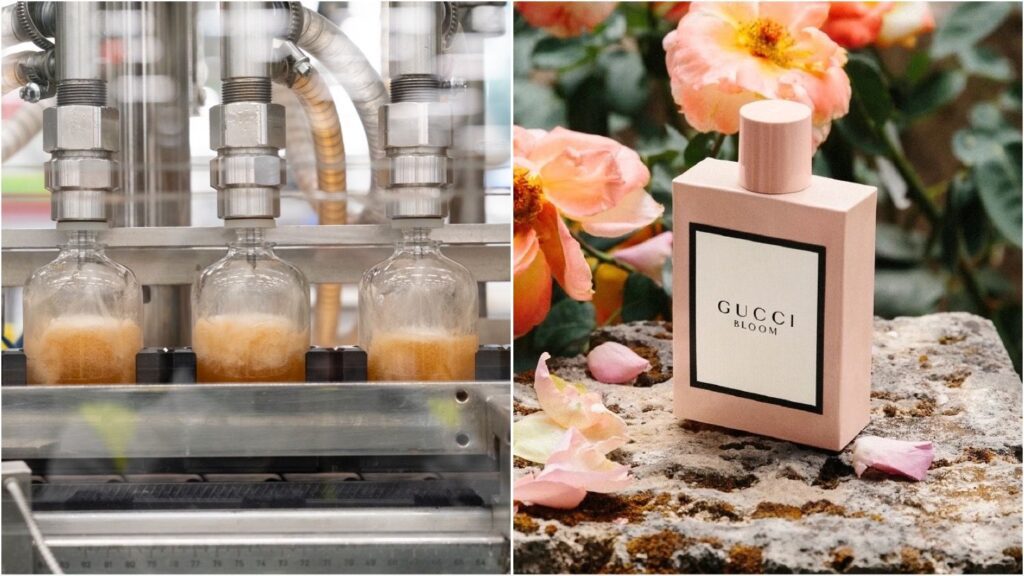Carbon capture is transforming the products we buy. At the end of last year, Zara announced it was making party dresses with old carbon emissions. Before that, Unilever South Africa launched dishwashing liquid created with recycled carbon. Now, it’s perfume’s turn. Coty is about to become the first in its field to globally distribute fragrances made with carbon-captured ethanol.
The beauty giant—which owns several luxury brands, including Gucci, Marc Jacobs Perfume, Joop! Fragrances, and Davidoff Perfumes—worked alongside carbon capture company LanzaTech for two years to create the new ethanol.
According to LanzaTech, its carbon recycling technology is like “retrofitting a brewery to an emission source.” (In Zara’s case, for example, the source was a Chinese steel mill.) It captures the pollution, and then uses a fermentation process to create ethanol. LanzaTech calls its version of the chemical Lanzanol.
Companies can then slot Lanzanol into their supply chains. Zara used it to create low-carbon polyester. For Coty, the chemical will be used to create more sustainable perfume. Its fragrances are currently 80 percent ethanol.
While this is a step towards a kinder, more sustainable supply chain, at present Coty is not certified cruelty-free. It does claim, however, that it has “been developing methods that provide a clear alternative to animal testing” for 25 years. It adds that each product is tested to comply with the rules of the country in which it is sold.
Coty’s sustainable perfume: Swapping sugarcane for carbon capture
In perfume, ethanol helps to break down ingredients, merge oils together, and disperse scent when fragrances are sprayed. But it’s not great for the environment. According to Coty’s 2021 sustainability report, its current ethanol is produced using several raw materials, including sugarcane.
Sugarcane is extremely water-intensive, and due to high demand worldwide, it’s land-intensive too. According to the World Wildlife Fund, sugarcane grown for ethanol is severely impacting biodiversity in areas like the Mekong Delta, southern Vietnam’s sprawling and precious network of rivers and swamps.
But from 2023, Coty aims to only create sustainable perfume using ethanol produced via carbon capture. It has already made huge strides towards that goal: in mid-January, the company’s Spanish manufacturing facility received 20 metric tons of Lanzanol in order to begin production.
“This exciting step forward in Coty’s sustainability journey demonstrates our ability to meet and exceed the ambitious clean and green roadmaps we have set for the future,” said the company’s new Chief Scientific Officer Dr. Shimei Fan. “We are now on course to integrate carbon-captured ethanol into a majority of our fragrance portfolio ahead of our ambitious 2023 goal, putting Coty on the leading edge of sustainable fragrance innovation.”


